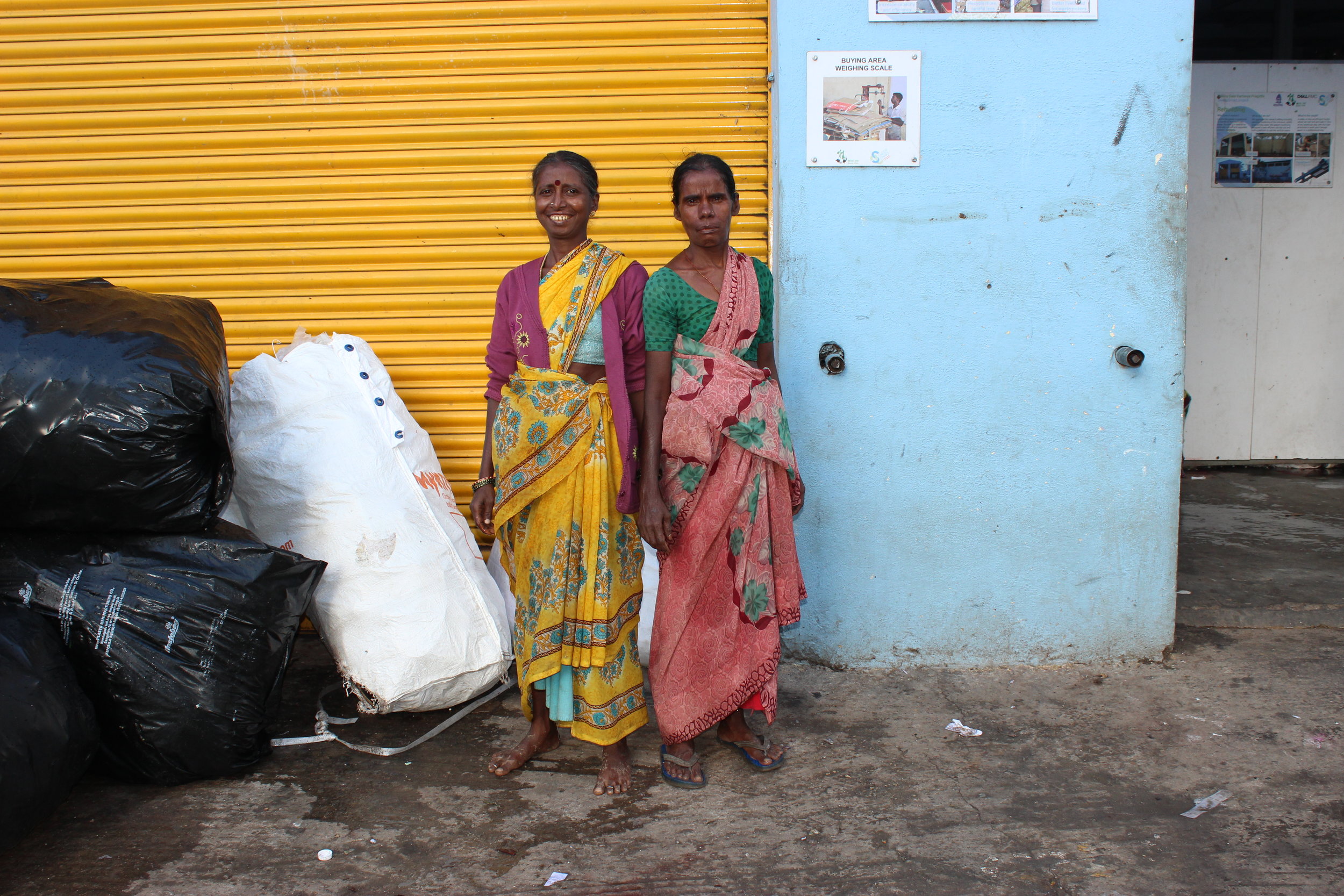This October, Andrew Almack ( CEO of Plastics For Change ) had the opportunity to speak at the Textile exchange conference in Washington DC. This Q&A session was hosted between Andrew Almack (A) and Liesl Truscott (Q).
Q: CAN YOU TELL US A LITTLE ABOUT PLASTICS FOR CHANGE?
A: Plastics for Change has adopted strategies from fair trade agricultural practices and applied them to the informal recycling economy in developing countries. Our deal process and mobile platform provides urban waste pickers with access to fair market prices. We work with apparel brands to immediately improve the social and environmental impact of their garments, while increasing the value of their goods to today’s conscious consumers.
This initiative is about using mobile technology to create sustainable livelihoods for the urban poor while helping the industry make a profitable transition towards a circular economy.
Q: HOW DID YOU GET STARTED ON THIS JOURNEY?
A: This initiative is about using mobile technology to create sustainable livelihoods for the urban poor while helping the industry make a profitable transition towards a circular economy.
My journey started with a trip to Cambodia back in 2011, where I became fascinated with the opportunity to use plastic waste as a means to reduce poverty in developing regions.
The scale of this problem is audacious. 2 billion people are living on $2/day and 3.5 billion people are living without access to crucial waste management services.
My trip to Cambodia inspired me to write my honors thesis on the subject in university. I have been focused on implementing human-centric solutions to this environmental challenge ever since.
Q: CAN YOU GIVE US A SNAPSHOT OF THE INDUSTRY – AND THE SHIFTS AT PLAY?
A: The industry is making a lot of process, but unfortunately, the problem is also growing at an alarming rate.
In most developing countries the consumption rate for plastic is growing at double digits. In fact, in the next 24 hours, the virgin plastics industry will consume approximately 7 million barrels of oil. Municipal waste management budgets simply can’t keep pace with this exponential growth, therefore it is imperative to catalyze the industry to transition towards a circular economy. The actions we take in the next decade will determine the direction of the planet for the next hundred years.
The good news is that consumers are increasingly concerned about how their choices impact the environment, their community and their own well-being. They expect companies to be greener and offer more ethical products and services.
Q: HOW ARE COMPANIES RESPONDING TO THIS AWARENESS?
We’ve had fair trade agriculture for decades and there is a lot that the recycled polyester supply chain can learn from this sector.
Collecting and recycling PET bottles supports millions of economically vulnerable families globally. The Word Bank estimates that 1% of the urban population relies on recycling as their primary household income.
The Recycled Polyester industry can make a contribution to all 17 SDGs by supporting a circular economy in developing regions. Now more than ever, consumers want to purchase from brands who share their values. Consumer advocacy is driving companies to take action. We’re living in an incredible time where we have the ability to address the textile industries problems at scale.












